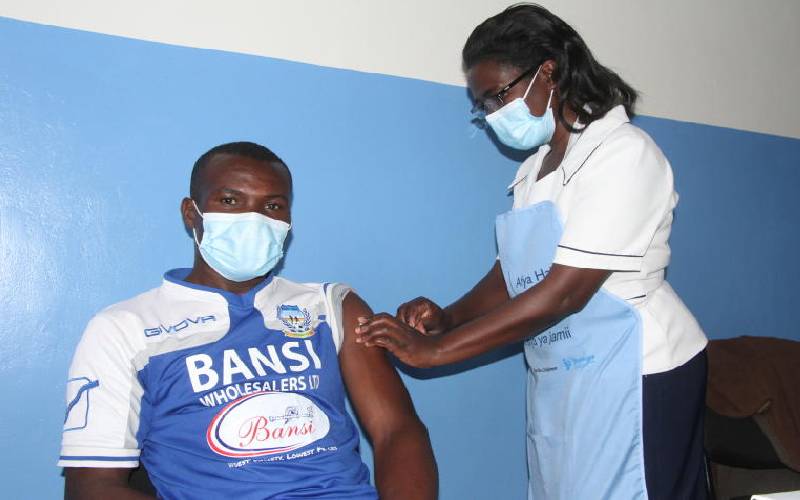
Stephen Otieno, the Migori Football Club goalkeeper is vaccinated against Covid-19 at Migori County Referral Hospital on April 19, 2021. Youth football clubs in Migori have sent their members for the vaccine. [Caleb Kingwara, Standard]
Kenya’s presidential lockdown in the five ‘diseased counties’ has helped reduce Covid-19 infections, according to health experts and government officials, but fatalities remain high.
Experts are also warning of a fourth wave due to mutations and that Kenyans should not lower their guard on the face of increased fatalities despite numbers of infections and hospitalisations reducing.
 The Standard Group Plc is a multi-media organization with investments in media
platforms spanning newspaper print
operations, television, radio broadcasting, digital and online services. The
Standard Group is recognized as a
leading multi-media house in Kenya with a key influence in matters of national
and international interest.
The Standard Group Plc is a multi-media organization with investments in media
platforms spanning newspaper print
operations, television, radio broadcasting, digital and online services. The
Standard Group is recognized as a
leading multi-media house in Kenya with a key influence in matters of national
and international interest.











